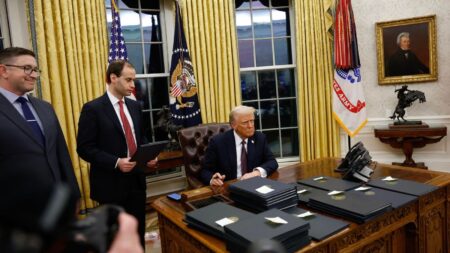Highnote, a San Francisco-based payments startup, has raised $90 million in Series B funding that values it at more than $750 million, a source close to the transaction told Forbes. The round was led by Chicago-based investment firm Adams Street Partners, with Oak HC/FT, Costanoa, Westcap, and Pinegrove Capital Partners also investing.
Founded in 2020, Highnote’s first product was card-issuing software that lets businesses quickly issue customizable debit cards, credit cards, virtual cards, charge cards or loyalty cards, similar to the services offered by Marqeta.
With the new funding, Highnote plans to invest more heavily in a new product it released today after more than two years of development: software that lets businesses accept online credit and debit payments (known as acquiring). That will allow Highnote to handle both sides of card transactions– issuing cards and processing payments made with them. It’s a strategy Highnote CEO John Macllwaine says he had planned to follow since founding the company four years ago.
Before starting Highnote, MacIlwaine, 55, spent 25 years working at financial services and fintech companies, including as an executive at Visa, chief information officer at prepaid card issuer Greendot and chief technology officer of LendingClub. At Visa, MacIlwaine had one of the eureka moments that would lead to the formation of Highnote. “Being able to see how global commerce was occurring and the transactions and volume and scale really gave me an appreciation for just how impactful payments are,” MacIlwaine says.
In 2020, he left a role as general manager of Braintree, the Paypal-owned payments processing firm that competes closely with Stripe and Adyen. He cofounded Highnote with Kin Kee, who had been Braintree’s director of architecture.
MacIlwaine decided to pursue Highnote with Kee to address a problem he’d noticed in the payments space. Many payment processors only manage one part of the transaction, MacIlwaine says. “As it turns out, lots of large enterprises have a need for both of those functions, pay in and pay out,” MacIlwaine says. “Right now, their choices are to partner with multiple vendors and really pay double the costs and not get a lot of the benefits from having a unified platform. That’s what we built.” Stripe is an exception to this rule, as it does both acquiring and issuing, though its acquiring business dwarfs its issuing products, and it added issuing many years after it launched its core acquiring service. Macllwaine argues that Highnote gets an advantage from having its issuing and acquiring software embedded in its infrastructure from early on.
He says Highnote hit $81 million in annualized gross revenue by the end of last year, although it is not yet profitable. It has more than two dozen customers, including payments firm Netevia. Highnote provides Netevia with payment processing services for employee corporate cards and acquiring services. Highnote has 124 employees, and it makes money through software fees and by taking a cut of the interchange fees merchants pay when credit and debit cards are swiped. (Its gross revenue figure is before banks and other partners get their share of interchange.)
Now Highnote faces a complex ecosystem with competitors in many corners. Marqeta, which went public in 2021 and hit a peak market value of $18 billion is a prominent card issuer, but its time on the public markets has been rocky. The stock has since lost more than 85% of its value and trades at about a $2 billion market cap today. Another competitor is Lithic, a ten-year-old New York company specializing in payment processing and card issuing. “As the technology waves come and go, you see the technology providers fit-for-purpose for the previous waves not being fit-for-purpose for the new waves,” says Robin Murray, the head of growth equity investments at Adams Street Partners.
Another major challenge: Regulators have been scrutinizing banking-as-a-service companies more closely, especially in the wake of Synapse’s collapse. In its recent earnings call, Marqeta said it struggled with delays and a surplus of accounts formed after regulation reworked how it onboards banks.
Macllwaine says he’s not concerned. He says Highnote has invested heavily in its infrastructure, such as its general ledger, training and hiring. “We had very, very little impact in what’s happening–nothing like what Marqeta has been talking about,” Macllwaine says. “Yes, there’s impact, things move slower than they have. But that’s part of our value-add to customers is to help them navigate through the regulatory and compliance landscapes.”
Read the full article here











